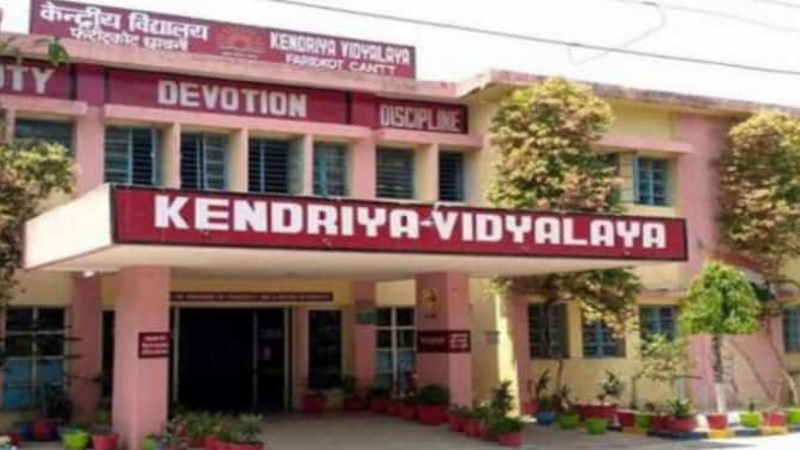
Image Courtesy: livelaw.in
On September 7, the Supreme Court adjourned a 2017 writ petition filed by Advocate Veenayak Shahagainst prayer being recited in the KendriyaVidyalayas (government run Central Schools) which are related to one religion. The petitioner had sought directionsagainst the respondents i.e., Union of India and KendriyaVidhyalayaSangathans, to “discontinue any form of Prayer from the Morning Assembly or otherwise, in Kendraya Vidyalaya Sangathans and to promote Scientific learning among the students.”
A bench comprising Justices Indira Banerjee, Surya Kant and M. M. Sundresh was hearing the said case. However, Justice Banerjee adjourned the matter on the ground that she has taken up a lot of matters and does not have the time to take up this matter at present, reported LiveLaw. But the court allowed the Jamiat Ulama-i-Hind to file and impleadment application. The matter is likely to be heard next month.
In 2019, a bench comprising Justices Nariman and Vineet had referred the matter to a three-judge bench. Colin Gonsalves, Senior Advocate, appearing for the petitioner, submitted before Justice Banerjee that Justice Nariman had, during the previous hearing, observed that the writ petition raised questions of seminal importance regarding the correct interpretation of Article 28(1) of the Constitution of India.
Justice Indira Banerjee sharing her own experience stated that, “The school that I used to go to, we had to stand in the assembly and say our prayers.” While adjourning the matter she had also observed that the prayers are done in the schools to inculcate moral values, reported LiveLaw.
In addition to this, an impleadment application filed by Jamiat Ulama-i-Hind, which sought the indulgence of the Court to consider the view of the Minority Communities including the view of the Muslim Community in the matter, was also allowed. It was pleaded that as the matter involves the question as to whether the prescribed common prayer stipulated in Revised Education Code is in consonance with the personal laws of minority communities, the minority communities get a chance to have a say in the same. It was submitted in the application that, “Since the said common prayer is based on Hinduism, the members of the minority communities who are forced to recite the said prayer are aggrieved by the said provision.”
As per the application, since the Kendra VidyalayasSangathans is an educational institution maintained out of state funds, mandating the recitation of a common prayer which was based on any particular religion is not constitutionally permissible and is violative of Article 25 and Article 28 of the Constitution of India.
Background of the Petition
Lawyer Veenayak Shah, whose children had graduated from Kendriya Vidyalaya, filed the petition objecting to the institution’s requirement that students recite Sanskrit and Hindi hymns. On the grounds that religious prayers will make it difficult for students to develop a scientific temperament because the concept of God and religious faith is given such high priority and instilled in them as well, the petitioners ask that a Hindu religion-based song be discontinued as a morning prayer in KendriyaVidyalayas across the nation.
As a result, rather than learning how to overcome the challenges encountered in daily life, pupils wind up acquiring a tendency to turn to the Almighty for help.The petition invokes Article 28 (1) that says, “No religious instruction shall be provided in any educational institution wholly maintained out of State Funds”. It insisted that any school or educational institution funded by state cannot propagate any particular religion.
Related:
Gujarat: Jamiat Ulama-e-Hind moves High Court against teaching of Bhagavad Gita in schools
Karnataka: Hindu Janajagruti focuses on ‘Bible in classrooms’, after hijab controversy
Jamiat Ulama to contest decision to convert all madrasas into regular schools in Assam
Hijab Ban case: Supreme Court pulls up petitioners for seeking adjournment